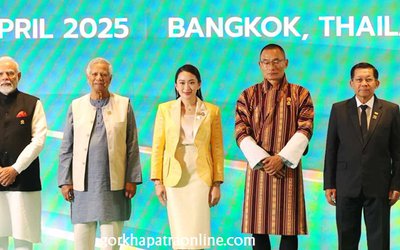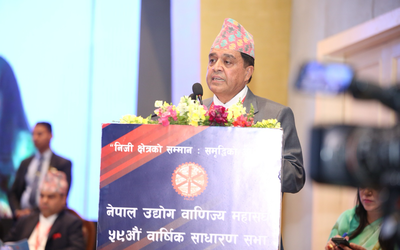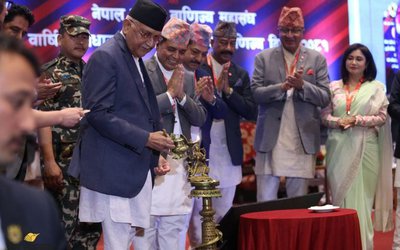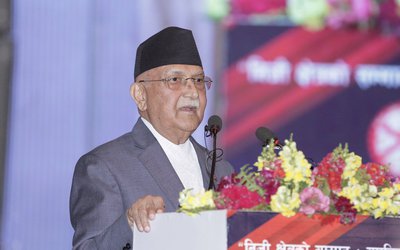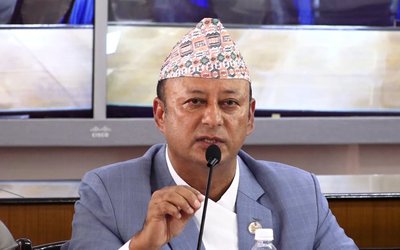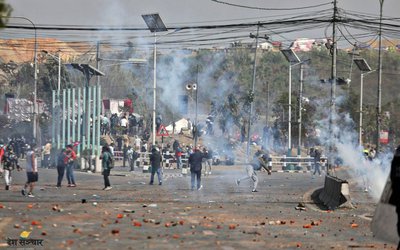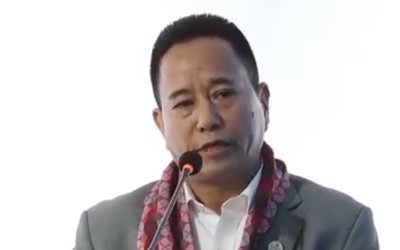
Generally, there are three reasons why someone donates to a political party. One agrees with the ideology of the party and wishes to demonstrate this through donations or donations, and/or membership fees. It also establishes relationships with other supporters and members. A sense of kinship and belonging is part of being human. So it is but natural to favour some one you like and have linkage and donate.
One wants a party that supports a war chest to win elections and promotes the ideology of parties that dislike or hate that ideology. Do they expect a favor in return.
This can only realistically happen if your donation/donation is significant and is in your name and clearly states (whether confidential or open) the expectation of that party. Of course, if one loses favor or if leaders develop selective memory - they run the risk of not being favoured. But that's a chance.
Is the donation legally valid or illegal? This is a very good question, indeed. Two factors are involved here. Who is the donor and what is the donation amount? Even today it would be unfortunate if we didn't know which party wanted every donation to be made public and who else held the opposite view.
Once a donation is made to a party, there should be a donation/donation page containing all donation/donation details. Since donations vary from very small amounts to large sums and donors are in the millions, it would be unfair to expect every party or party to benefit everyone! Donors may argue that, since this party needs a foundation for a good cause and serves the nation, it needs money for many reasons, it is a philanthropic cause—one cannot ignore it in the true sense.
Donation does not mean asking for favors, unless it is found. Legal, as long as it is not a party.
Blindly, we cannot say that all the donations are for the party and it is not the case that all the donations are for the opposite party. Both the donor and the party should be accused of involvement in criminal activities and strict penal action should be taken.
The question is - do we have such a system? If so, does it work? There should be no room for doubt.
In neighboring country India, political funding appears to be regulated by laws made by Parliament, made by an elected legislature. A political party is a group of people i.e. a legal entity and anyone can deal with a legal entity. According to them, if that party forms a government in the future, giving money is illegal.
Now if we talk about the election bond, many will contribute at most 100, 1000 rupees. What do people expect in exchange for hundred or thousand rupees? nothing It is only a belief that this party will do something good for the people.
As far as big businesses are concerned, they give money to all major parties and they expect good business environment, good laws, compliance etc. One cannot always suspect big donors of doing something nefarious
How do political parties raise their funds? How does democracy work? If no one gave money, would anyone know the manifesto of these parties? No monetary transaction in this world happens without purpose.
Sometimes, the motive is plain and simple and sometimes, the desire for return, the desire for favor. (Monetary transactions between near and dear ones are plain and simple, at least in culture. Nobody wants anything in return.
They all do favors for each other without expecting anything in return.) In other words, it's nobody's business what one entity wants by giving money to another entity.
Even in Nepal, representative organizations of the private sector have requested the government to come up with a proper system for collecting donations during the election period. The representatives of the private sector said that the political parties participating in the local and federal elections were collecting donations from the private industry in an unorganized manner. The Income Tax Act of Nepal stipulated that the industry cannot donate more than one lakh in a year. However, the fact that the local industry forced political parties and local candidates to donate more than the legal limit was made public at that time.
Due to the large number of political parties and their local candidates for the local elections, in the past it was felt that industrialists all over the country were facing problems.
It has also suggested to the government to properly manage the collection of donations during the elections and to provide donations to the industries through checks. "Legitimizing donations and allowing such contributions through checks will help industries keep track of expenditure and also allow industries/businesses to include their expenditure on donations/donations in the annual balance sheet of industries," it said. Allowing the donation to be included as an 'expenditure' in the annual balance sheet of the industry will provide relief to the industry/business in paying taxes to the government. The industrialist also suggested the government to create a 'basket fund' to collect donations for political parties. Like abroad, industries will deposit a certain percentage of their income into a basket fund. This fund can be used to give donations based on the votes earned by the political party in the elections,'' it was said.
There are two sides to the existing political system in neighboring country India. The first is theoretical. In theory, political parties are groups of people bound together under a common ideology. For example: some political parties support left-wing ideology and others support right-wing society. Such associations need funds both to sustain themselves and to spread their ideologies to other people. Such funds come from contributions from such affiliates, which we refer to as donations or donations.
Now to the other side, which is the practical side. Practically, various corporate groups lobby to persuade the political party to their needs. For that these corporates or individuals donate huge amounts of money known as donations or party funds to these political parties and also support them during elections. As such, donating is not illegal.
This is for democracy. However, influencing the decisions of our government with such donations is wrong and is happening everywhere nowadays. Political parties serve the vested interests of those who donate to them. This is against our constitutional values and democratic system.
In Nepal, political party laws and related regulations should have mentioned and clearly explained about donations or should have been regulated by working rules, directives, guidelines etc.
Political party fundraising is a method used by political parties to raise money for campaigns and regular activities. Funding of political parties is one aspect of election expenditure. Political parties are funded by contributions from many sources. The largest source of funding comes through membership fees, subscriptions and small donations from party members and individual supporters. This type of funding is often called grassroots funding or support. Soliciting large donations from wealthy individuals, often referred to as plutocratic funding, is also a common method of securing funding.
Parties may also be financed by organizations that share their political views, such as unions, political action committees, or organizations that seek to benefit from the party's policies.
Since the second half of the 20th century, parties that have generally relied on donations or membership fees have faced increasing problems. In most Western democracies, increased scrutiny of donations and a long-term decline in party membership are putting huge strain on funds. For example, in the United Kingdom and Australia, membership of the two main parties in 2006 was less than an eighth of what it was in 1950, despite significant population growth over the same period.
The UML politburo meeting held at the some time back formed a committee led by the senior vice president to create a party office, but after changing its decision within a month, the UML has now chosen the path of acquiring the keys to about 11 ropani land and a grand building to be built on it. UML will now operate from a building worth about one and a half billion donated by a businessman. Why was a businessman entrusted to make the central office of a party with 500,000 organized members with a large base? There has been widespread criticism.
At the same time, there has been public criticism after the recently jointly laid foundation stone of the building. However, the UML leadership has stood by its decision. It is to be remembered that after criticism from within the party, the UML Publicity department has issued a press note. The Head of Publicity Department has claimed that it has nothing to do with the creation of party office, saying confusion has been spread.
"Regarding the construction of the central office building of UML, there are many types of misinformation, spreading rumours, spreading false information within the party and misusing the media to harm the party and the party leadership," the press note said. ............ has provided 10 ropani 14 annas of land for the construction of a new office building due to the poor state of the central office of UML. It has nothing to do with it,, voluntarily donated the land, UML accepted it. Let's not slander without understanding the facts.” It is said
They say that the Election Commission can also investigate this matter as the donation taken by the ruling party is seen as a direct conflict of interest. It is natural for everyone to expect that from the existing law and prevailing system
In Britain, the mother of democracy, the financial resources of parties are of three types: membership fees, money received from the state and money collected from donations, grants or loans. For administrative and parliamentary work, Parliament provides funds from government funds for nationally recognized parties.
The Electoral Commission monitors the legality and transparency of the party's financial resources and expenses in the UK. Political parties must also be registered with this commission for operation. There are currently about 370 plus registered parties in the UK.
According to the opinion of some people, if it is confirmed that they have received financial assistance in a conflict of interest and without revealing the source, they should be registered with the Election Commission.
Legal experts and good governance workers have said that donating land for party offices in the name of UML is not only unfair and opaque but also cannot be said made in good terms .
- “Kolahalko Kolaj “: A Collection Of Scattered Memories By Prakash Sayami
- Apr 02, 2025
- Nepal-India Trade, Transit And Unauthorized Trade: Some Considerations
- Jan 16, 2025
- PM Oli’s Forthcoming Visit To China: Will The Achievement Be Complete?
- Nov 29, 2024
- Obituary To Dr. Mohan Man Sainju!
- Nov 02, 2024
- From the “Tito Satya” of the small screen to the“ChakkaPanja-5 of big screen – Is it "Must see" or Bhaigo" Pass" to watch?-
- Oct 15, 2024

